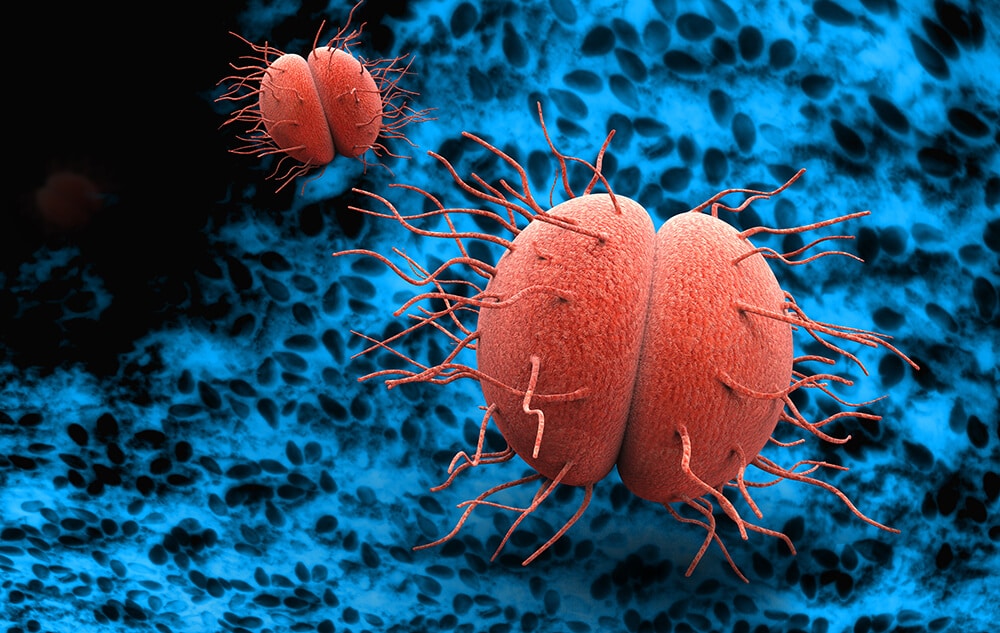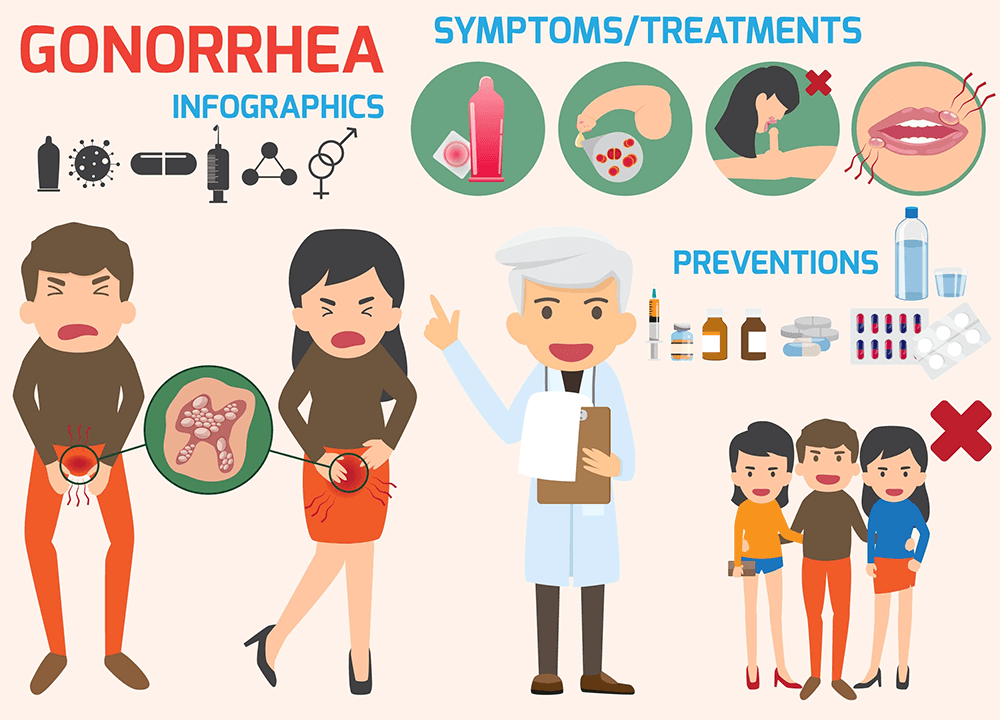Gonorrhoea is after chlamydia one of the more common STDs and it is also a bacteria infection. The two STDs are commonly tested for together in a screening. Gonorrhoea can be passed and contracted by both genders and infects the penis, vagina, anus, throat and eyes. If left untreated it can cause complications but it can be cured if detected and treated.
How is it spread?
Gonorrhoea can be transmitted during vaginal, oral or anal sex when not using a barrier method such as a condom. Some research also suggests it can be passed by kissing but this is not conclusive. In a similar way the chlamydia, gonorrhoea can also be contracted by a newborn if her mother is infected during the delivery process.

Like Chlamydia, the gonorrhoea infection may not display any symptoms. Even if this is the case you can still transmit the infection to your partner if you are not using protection and does not reduce your chances of contracting it. It is also reported that if you have had gonorrhoea before you are more likely to contract it again if not using protection. Lastly, untreated gonorrhoea can increase your chances of getting other STDs and spreading these to your partners during sex.
How do I know if I have it?

It can take up to a few weeks (30 days) to show any symptoms of gonorrhoea. As mentioned before, you may not show any symptoms at all even after this time which is why it is important to get tested if you think you have been exposed. This means any form of unprotected sex. For women symptoms if they show are often very mild and can often be confused with bacterial vaginosis or yeast infections.
The most common symptoms for men:
- A green, white or yellow pus from the tip of your penis
- Pain in lower stomach or aching of the testicles
- The urge to urinate more often
- An itch of the penis or anus
- Any unusual discoloration of the penis
- Burning when urinating
The most common symptoms for women:
- Pain during sex
- Vaginal discharge: green, white or watery
- Burning when urinating and the need to urinate frequently
- Pain in the lower stomach
- Spotting or heavier than usual periods
What is the test and treatment like?
Gonorrhoea can be tested for in a few different ways and results will be available within a few days. The test can be a urine test, blood test or a swab of the penis, vagina, rectum or throat. At home self testing kits are also common now for HIV, Chlamydia and Gonorrhoea.

Gonorrhoea can be cured as it is a bacterial infection and this is using antibiotics. The treatment will likely be in the form of one injection into the buttocks and oral medication. Symptoms will begin to retreat within days and you will feel relief however you should refrain from sex for an entire week to avoid transmitting the infection to your partner and giving it back to yourself again.
What if I leave it untreated?
If you are asymptomatic and leave gonorrhoea untreated it can develop into some complications for both men and women. For men, you may get painful scarring of the urethra, inflammation of the tubes carrying your testicles (painful) and lastly it can lead to infertility. For women, it can spread to the fallopian tubes causing scarring and lead to pelvic inflammatory disease (PID) which can also lead to infertility.
Come get tested
If you are reading this and you feel you have some of the symptons, or you just feel you need to make sure after an unprotected encounter. Come to MedConsult Clinic and get a test. It’s quick, easy, painless, Confidential and will give you the peace of mind you need. We can provide a whole host of Sexual Health test screenings and you can see the full list here.
MedConsult Clinic
Dr Donna Robinson founded MedConsult Clinic in 2003 to offer high-quality, affordable medical care in Bangkok. With over 35 years of experience, she oversees a team of medical practitioners and nurses who provide healthcare services in English, Thai, Japanese, Chinese, Burmese, and other languages. Dr Donna herself is fully bilingual in English and Thai and holds UK and Thai medical licenses.

